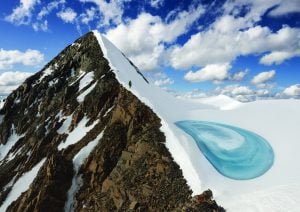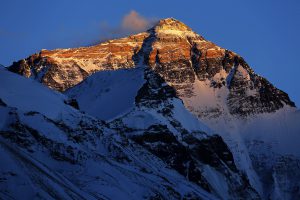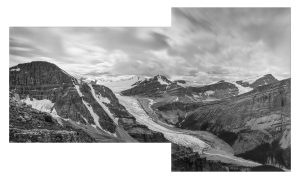
Environment
Why mountains matter in Canada
They sustain us, enrich our lives and inspire us
- 1287 words
- 6 minutes
This article is over 5 years old and may contain outdated information.
Travel
Euan Wilson of mountain bike travel company H+I Adventures on what makes a two-wheeled adventure in Morocco so special

When you think of mountain biking destinations, what comes to mind?
In Canada, it might be Alberta’s Kananaskis Country, British Columbia’s South Chilcotin Mountains or Quebec’s Mont-Sainte-Anne. In the United States, it could be Utah’s Moab region or in and around North Carolina’s Pisgah National Forest. And if you look farther afield? Like across the Atlantic Ocean and into the spectacular landscape of Morocco?
OK, so no one will blame you if you’re drawing a blank on that one. That’s because despite having superb terrain and trails, Morocco is still considered an off-the-beaten track destination for mountain biking. But Euan Wilson wants to help change that. Wilson is the director of H+I Adventures, an international mountain biking tour company based in Inverness, Scotland, that today announced it would be running three eight-day/seven-night tours to the North African country beginning in May 2019.
Wilson did the on-the-ground prep work for the new tour in May 2018, biking nearly 200 kilometres from Marrakech to the heart of the Atlas Mountains alongside Eric Porter, an American pro mountain bike rider. Here, Wilson talks about that experience and what mountain bikers can expect to see in the country.
I had been to Morocco a few years ago, although not to ride, and fell in love with it. But the real motivation for this adventure came from a phone conversation I had with Eric Porter one dark winter’s night in Scotland. We’re both fortunate to have ridden in some spectacular locations, but as we chatted, we discovered that neither of us had biked in Morocco and that we were both really keen to get there. I had a vague idea of what I wanted to do when I had the chance to go back to bike, and Eric was up for the adventure, so I mapped out a plan and a route, made contact with an industry friend in Morocco to assist us with logistics and off we went. As far as I am aware, we’re the first people to ride this exact route and piece it all together.

The route is varied and challenging, taking you from Marrakech to the rocky arid mountains of the High Atlas. I won’t take you through it step-by-step, but you’ll see bustling souks at Marrakech, lush green valleys with mud houses clinging to the steep, the beautiful wildflowers of Amizmiz and the village of Ourigane, a little oasis in the dusty landscape.



Morocco is a barren place where crossing mountain passes and negotiating desert expanses is challenging but wholly doable, and that’s because of the Moroccan can-do attitude. For example, crossing our highest pass of the week is made a whole lot easier by employing the local porters and their donkeys to take our bikes to the highest point. The porter has got it all figured out — he fits two bikes on a donkey before setting off on the one-and-half hour climb. It’s probably the easiest load that donkey is ever likely to haul.

The people are the key. They’re warm, hospitable, kind and will usually share anything they have. I had a couple of experiences on the trip that restored my faith in humanity. For example, one day around noon we had just crested the highest mountain pass of the trip and the sun was punishing us. We dumped our bikes and bags on the ground and slumped next to them. Then a local came out of what looked like an abandoned hut and ushered us over to share some sweet mint tea. We couldn’t share conversation, just hand gestures, but at no point did it feel strange, awkward or forced. We just sat enjoying each other’s company until we had our fill of tea and had to make tracks.
On another day, we came around a singletrack trail that hugged what looked like a winter sheep pen. As we took the corner, two shepherds were resting against the wall, drinking tea and eating bread. We didn’t notice them at first, but they shouted at us. We thought we’d done something wrong and that they were angry at us, but that wasn’t the case. They wanted us to come over and share the only food and tea they had. Real experiences like these can’t be forced or found in touristy areas.


Are you passionate about Canadian geography?
You can support Canadian Geographic in 3 ways:

Environment
They sustain us, enrich our lives and inspire us

Exploration
A century after a Canadian was instrumental in charting the world's highest peak, a fellow Canadian reflects on the magnetism of Everest

Environment
Glaciers play a vital role in sculpting the landscape, and their retreat can bring about drastic consequences

Environment
Meet Roger Wallis, Canadian mountaineer extraordinaire